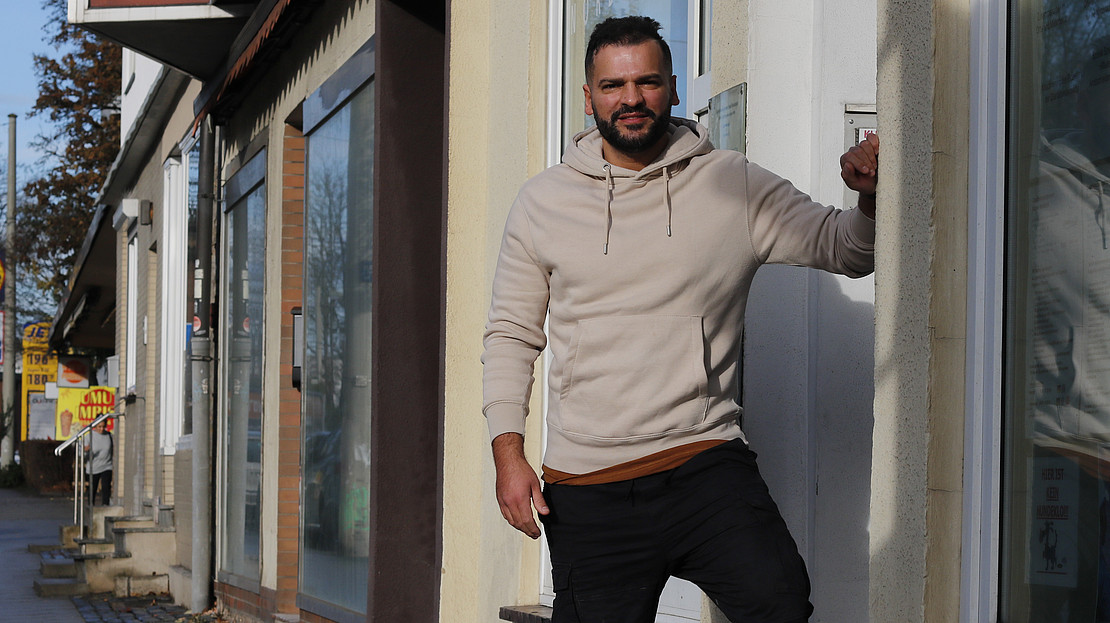This page contains automatically translated content.
The University of Kassel is also a place for educational climbers. One of them is Umut Kaban
 Image: University of Kassel
Image: University of KasselOne of Umut Kaban's concerns: he advises families on how to get their children through school as successfully as possible. Because, he says: "Many more young people from these neighborhoods could make it to university."
But there are hurdles. Many children live in an environment that doesn't exactly pave the way for them to go to university: their parents can't teach them German or there are no role models or relatives who have studied. "Only 27 percent of pupils from a non-academic household go on to study. The figure is 79 percent for the children of academics," according to the Stifterverband's 2020 Education Report.
Those who do make it to university often do not have a traditional Abitur. At the University of Kassel, one in four students study with an entrance qualification for universities of applied sciences, a subject-specific higher education entrance qualification or a vocational qualification. This is by far the highest rate in Hesse and one of the highest in Germany. One reason for this is that there is no state university of applied sciences in North Hesse, traditionally the place of education for graduates with a vocational baccalaureate. Another reason is the large number of technical and teaching degree courses, which are in high demand from people who have moved up the educational ladder.
"In principle, everyone should be able to develop their full potential, regardless of whether that means training or studying, whether it's a technical subject or the humanities," postulates Prof. Dr. Ute Clement, President of the University of Kassel. "As a society, we have to make this possible. At the University of Kassel, we play our part in opening up successful educational careers."
But that starts early. Kaban was lucky enough to meet a principal who recognized his potential, supported him, but also demanded a lot from him. He switched from the Hauptschule to the Realschule branch, from there to the Gymnasium branch and finally graduated from the Goethe School, studied urban planning at the University of Kassel and, looking back, says: "My studies turned the tide in my life."
Kaban is still closely connected to "his" Nordstadt. Last year, he worked for a project that makes it easier for men and women from the neighborhood to enter the workforce. He recently became a neighborhood manager in Nordstadt. As an educational consultant, he also helps families to create better learning conditions for their children. Sometimes this means reserving the living room for homework at certain times in cramped apartments. Sometimes it means accompanying parents with poor German skills to parents' evenings. But above all, one thing is important: "The boys and girls need role models. Many don't have the confidence to do anything. Only when they know someone around them who has completed their education do they think about studying or training."
Umut Kaban is happy for anyone who manages to successfully complete school, get a good apprenticeship - or go to university - despite difficult starting conditions. In the long term, this could make an "invisible border" more permeable. After all, the university's central campus is located in Nordstadt and the university now radiates out into the surrounding area. But for many pupils in the neighborhood, the university is still a foreign world.
Anyone who is about to take their Abitur or Fachabitur or already has it in their pocket will find contacts at the University of Kassel to talk to about the right course of study and the right support. One of them is Oliver Claves from the Academic Advisory Service. "We also provide individual help, especially to young people without an academic family background or with atypical educational paths," he promises.
Text and photo: Sebastian Mense
This text is part of issue 2023/1 of publik, published on February 13.